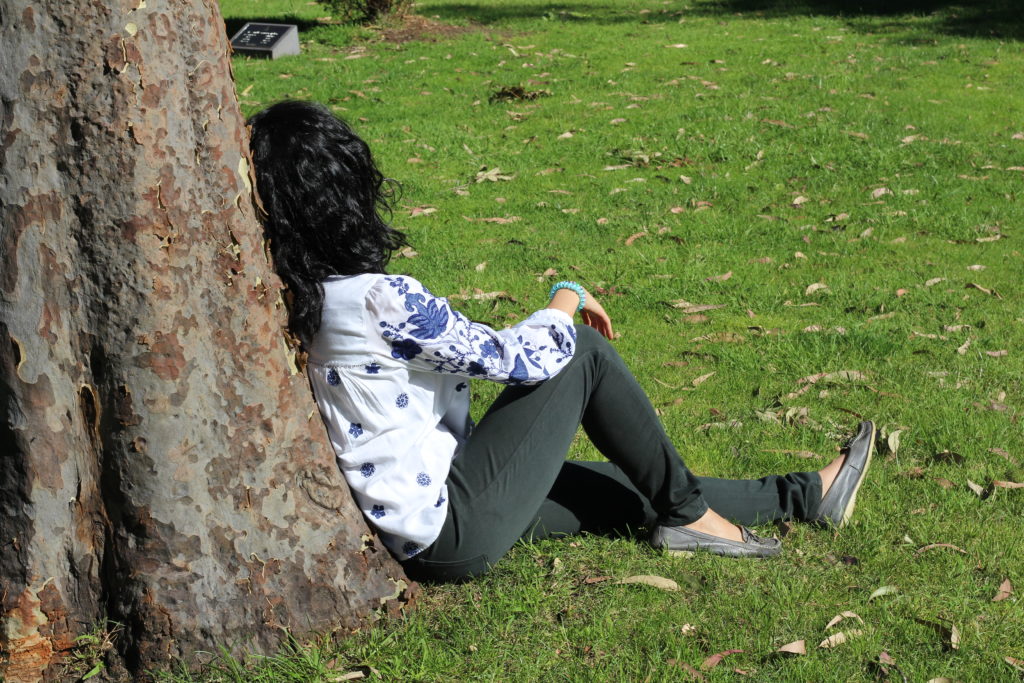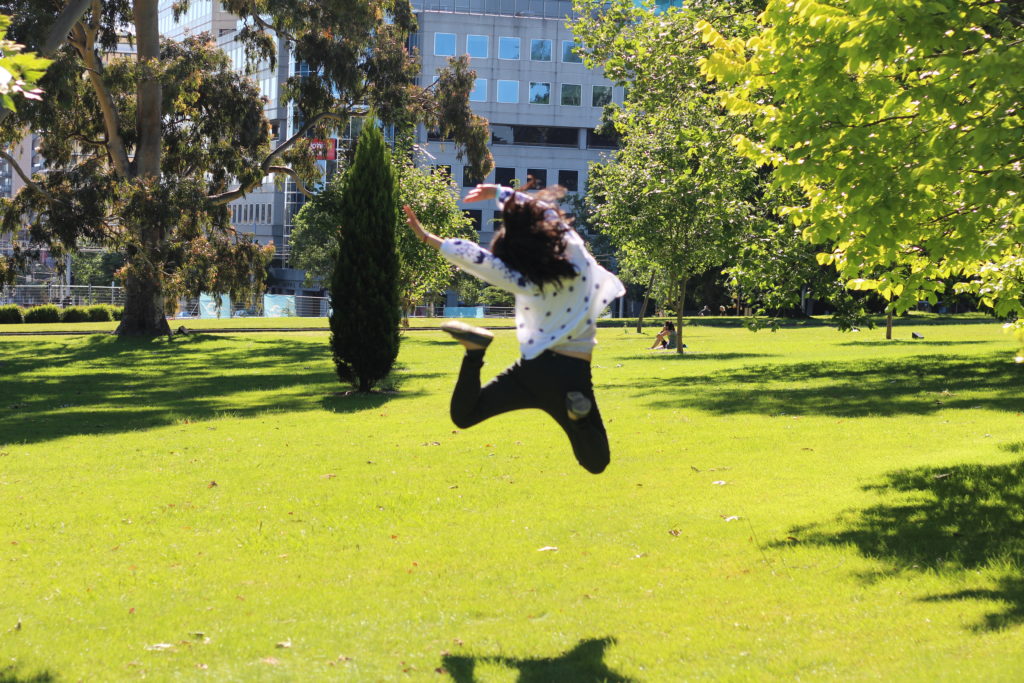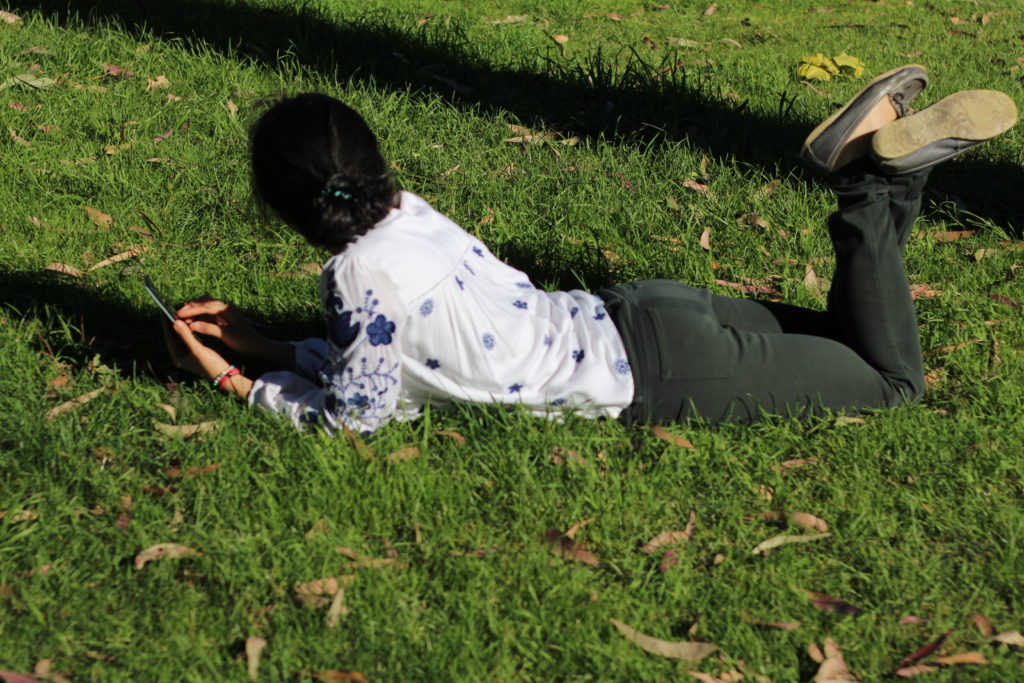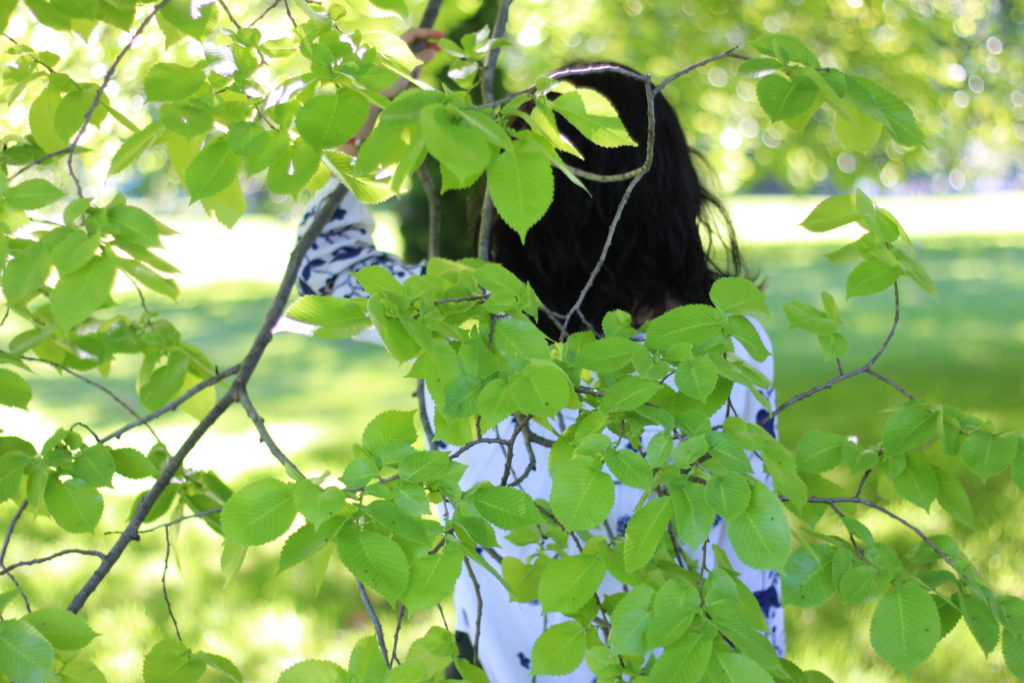JODIE*, 28 Cyclist
Please be aware that this interview may cause distress to some readers. If you experience distress then please seek assistance and lean on your support networks.
How are you feeling?
That’s funny you should ask, because we were just discussing that right before you hit the play button. I’m feeling jittery, nervous and excited, mainly because this is outside my comfort zone. I’m very shy and self-conscious. Normally it’s easy for me to talk to you, but because I’m aware of a voice recorder in front of me, it’s suddenly made me lost for words. This is really good, it’s forcing me out of my comfort zone. I’m excited.
How would you identify yourself?
Generous, loving, shy, anxious, funny. You know, sometimes I wonder whether my illness is my personality. Who knows? I tend to be negative, impulsive, forgiving, easy going. It’s interesting, I say I’m anxious, and yet I say I’m easy going. They seem to be two mutually exclusive things. I guess I’m easy going, in the sense that I’m accepting of differences in people. I tend to go with the flow, believe it or not. I’ve just learnt to pick my battles over the years.
Can you tell me about your journey with mental health?
I’ve always had an anxious, nervous and a pessimistic personality to begin with. But it wasn’t until I was 12 that it became pathological. It was the first time I thought that life perhaps wasn’t worth living. In the years since, my depression comes and goes; a sort of relapsing remitting condition. While I’m feeling well, I can forget I have a mental illness. Then something difficult happens in my life, and I’m reminded that, “Oh, I’m not well.” Now that I’m in my late twenties, depression manifests according how well I’m doing in life. Sometimes I brush it off in my mind, telling myself, “You’re just going through a rough patch, of course you’re unhappy. You’re not sick.” I think denial has been a predominant issue for me, particularly in the remitting phases of my depression.
Were there any underlying triggers as this began at 12 years old?
There were a number of triggers. Mainly it was that build-up of immense pressure from my childhood. I’ve struggled to forgive my parents for the pressure they’ve heaped on me over the years. It’s funny, I’m getting all cagey, here. It reflects my anxious disposition. I can talk to you about this as a friend, but the minute I’m in an interview, I’m really aware of it. Basically, it was extreme parental pressure, to the point that my dad decided to send us to Boarding School, because mum was unwell. She had mental health issues that accounted for severe limitations in our upbringing. Thoughts of going to boarding school was a huge stressor for me. I felt fearful, as I’d obviously, at that age, never left home before. The thought of living at a school in a foreign country was terrifying. But the alternative was worse, continuing to live in that unhealthy environment. On top of that, my negative home life fed off into my friendships at school. When you’re 12, school friends are so important to you. I started to withdraw, which made me lose friends, and the more friends I lost, the more I withdrew. It became a vicious cycle. In addition to that, there was another trigger I’ve never told you about. Life is quite funny that way. When it rains, it pours. Every Wednesday after school, I’d swim laps at the local pool as part of the school routine my parents had set up for me to help me get into the high school swim team, which I never actually managed to get into. I have a tendency to down play incidences, trying to make them seem less severe than they perhaps are. I even feel strange using the word “attack”, but yes, a pervert attacked me, a paedophile, I guess. It was a typical Wednesday evening, I was 12, swimming laps, and my parents were at home. It was just a short walk, a local neighbourhood pool, and a man grabbed my arm and slipped his hand in the crotch of my swim suit. I felt very guilty, as I didn’t scream, I didn’t react. There were other people at the pool that could’ve helped me had they known, but because I froze, it became an unnecessarily prolonged attack. Eventually he let go of my arm, and swam away. It’s probably an incident I should’ve addressed years ago, but I never have.
Were your parents aware of what was going on, including the incident at the pool?
Again, that’s where my denial has been my greatest downfall, but also my biggest form of self-preservation. No, I didn’t address it. In fact, the next Wednesday, I went back to that very same pool, and I continued my swimming routine as if nothing happened. I felt paranoid, wondering if he was lurking around the vicinity, but I never saw him again. I was relieved when Summer was over, because it meant I’d never have to return to that pool again, as I was due for boarding school the following year. I’ve never told my parents. For some reason, it didn’t occur for me to tell them. It’s not that I didn’t think they’d be supportive, I’m sure they would’ve called the police, it just never occurred to me. I’d gotten so used to not confiding in them, and I’d always been fearful of revealing how I really felt. The many times I’d attempted to had always been a futile exercise, leading to insults and criticisms that didn’t really encourage me to confide in them at all. I guess I feared their judgement.
What was running through your mind, when you got told you were going to Boarding School?
I’m easing into this interview. The more I reveal, the more comfortable I’m beginning to feel. As I’ve said, my mother has mental health issues, so our upbringing constituted child abuse. So I felt very relieved about the prospect of boarding school, but at the same time, fearful. Conflicting emotions, really. Ultimately, it was something I looked forward to. I was also relieved my dad finally addressed the situation, because I’d raised it with him in the past, but he’d always brushed it under the carpet. Finally, I told him, “Nobody else’s mother behaves the way ours does.” And he listened.
How did you manage your mental health through Boarding School?
It’s fascinating now that I look back on it. I went from a very sad withdrawn child, to a rebellious teenager. I was immensely angry, and that manifested as rebellion. I almost got expelled from Boarding School. I was constantly climbing out of the window in the middle of the night, running off to the city with my girlfriends, sneaking alcohol into the Boarding School, those kinds of silly antics, and all of it was coming from a place of anger. I felt injustice. I wondered why, instead of sending me away to Boarding School, didn’t my dad send my mother away for being abusive? I felt homesick for a year, but eventually came to love boarding school, as it was a reprieve from my home life. That was the time my depression went into remission for a couple of years. During those years, I temporarily forgot the crushing anxiety and unhappiness I’d known my entire childhood.
Do you think your father was and still is in denial, of your mother’s mental illness?
I’ve come to realise he’s always known. I recently asked him about it, and he laughed it off, saying, “you’re only finding this out now? Seriously? Everyone knows, it’s an open secret.” I was stunned, I’m in my late 20s, and this is the first it occurred to me that she is ill. Borderline, a severe form of it that made her quite violent, and it shocked me that to him, it was some kind of joke. He joked about her history of physical abuse, made light of it, laughed it off, saying that he was glad it didn’t result in permanent injuries like mental retardation. I found it disconcerting that a father could laugh about something so awful. But I know he’s not a callous person, he just has a tendency to use humour as a defence mechanism. I’ve sort of inherited that from him. I tend to diffuse sad events in my life with humour. In that sense, I’m very much my dad’s daughter. I’m a master of denial. The darker the subject matter the more terrible the incidents of my life, the more likely I am to spin it in the humorous way. I’ll actually have my friends laughing, and they’ll say, “Oh my goodness, I’m sorry, I shouldn’t be laughing at this.” It’s as much a weakness as it is a form of self-preservation. Whilst you do need to be able to laugh at yourself, it deflects from the severity of the situation.
How’s your relationship with your mother now?
It’s so much better now that I’ve moved out of home. I’ve taken a long time to move out, which I’m not proud of, because I have struggled to find work and figure my life out. I’ve finally moved out and I’m financially independent. I feel like I’m getting respect from my mum. When I talk to her, I have to be mindful of not seeking a mother daughter relationship, but rather, keeping the relationship light. We talk about movies we watched recently, singers she has a crush on, and I try my best to avoid making the mistake of confiding in her, as it will invariably blow up in my face, with her being angry and disappointed in my not being a stronger smarter person.
How are you managing the move interstate?
Right now, I’m doing well. If you spoke to me even a week ago, you’d notice I was doing badly. I had a falling out with a friend who, in my opinion, turned out to be a very selfish person. You asked me earlier what my personality traits are, and one of them is that I am a generous person. So I felt very resentful when I felt as though she had taken advantage of that generosity. This triggered a severe depressive state. I fell behind on work, struggled to get out of bed in the morning, eat poorly, I didn’t show up for gym for an entire month. I left my bike chained up in the city for a whole week because I was too depressed to pick it up, and unsurprisingly, it got stolen.
How has your depression changed from the age of 12 till now?
My worst episode was when I was 12. I’d made an elaborate plan to commit suicide. I feel guilty even admitting that. I felt very trapped and had a crush on my music teacher. Part of the plan was a cry for help from an adult. I skipped music class, wrote my teacher a little note, went to the top floor of my school, and for the entire period, sat on the ledge, with my legs dangling over the balcony. It was eerily quiet because everyone else was in class, and I’d vicariously lean forwards, darling the wind to blow, so I could slip to my death. I thought about the newspaper headlines, and hoped my teacher, this man I thought I loved, would rescue me from my home life. As I sat there contemplating it all, another kid walked past me. He was obviously skipping class too. We locked eyes for a moment, and he looked away, and walked off quickly, seemingly thinking, “Shit, I’m not going to ask.” Eventually, the bell rang, signalling the end of the period. Nobody noticed I was gone, and as the kids started filing out of the classrooms, I thought, “Gosh, what a coward I am. I fail at everything, even killing myself.” I hopped off the balcony, crumpled my little love note, binned it; and quietly went to the next class.
If you had a message for your 12-year-old self, what would it be?
I’ve actually had a dream like that before and I woke up crying, it was really weird. In the dream, I return to school as an adult, and see 7 year old me sitting forlornly alone at school. I sit next to little me and say, “You’re going to be okay.” That’s all I said, and I think that is all I would say to 12 year old me. I don’t think I could teach myself the lessons that I’m to learn in the future; I have to learn them for myself. I have to make the mistakes I’m going to make, that’s the only way to learn. All I can do is let my 12-year old self know I’m going to be okay, and it’s up to her to figure he rest out for herself. I think knowing that I’d be okay, would be enough in itself, because there were many times I didn’t think I’d be okay.
Would you say you suffer more from depression or anxiety?
It varies from month to month. Generally speaking, I’m more depressive than I am anxious. My most common symptoms are fatigue, exhaustion, numbness, as though I’m on autopilot, just going through the motions. Guilt is another common symptom, my telling myself that I’m a weak person, that I haven’t achieved enough with my life, that other people my age have done so much more. That and a sense of futility, that my future is one endless road of repetitive nothingness. I did a bit of cognitive behaviour therapy with my psychologist. She got me to write down a list of all my negative thoughts throughout the week. At the following session, she told me to read it out, and as I did, I started laughing. With the distance of reading it with a clearer mind, my thoughts sounded so exaggeratedly gloomy, I just had to laugh.
Do you have specific activities that help you find your way out of these stages?
I have grades of depression. When I’m at my lowest, the best I can do is get through the day, if even that. Not doing anything beyond the bare minimum of what is expected of me, which is to say, I turn up for work, and sleep the rest of day and night away. When I’m feeling a less severe form of depression, I can reluctantly drag myself to gym. I have a gym membership, and I pay a lot of money for it, so that’s a good incentive for me to go, even when I don’t feel like it. I’ll invariably find it perks me up immensely. The same goes with cycling. I’d reluctantly hop on my bike, but once I’m cycling, I’d immediately feel refreshed, the dark cloud slipping way. If I’m feeling good, I will grasp that often-fleeting moment by the horns. I think people with depression tend to treasure the good days more than normal people, so I’ll be unusually active. Today I’m feeling well, so it’s been a particularly active day. I picked up my new bike, went cycling, had a good dinner, and now I’m having this interview.
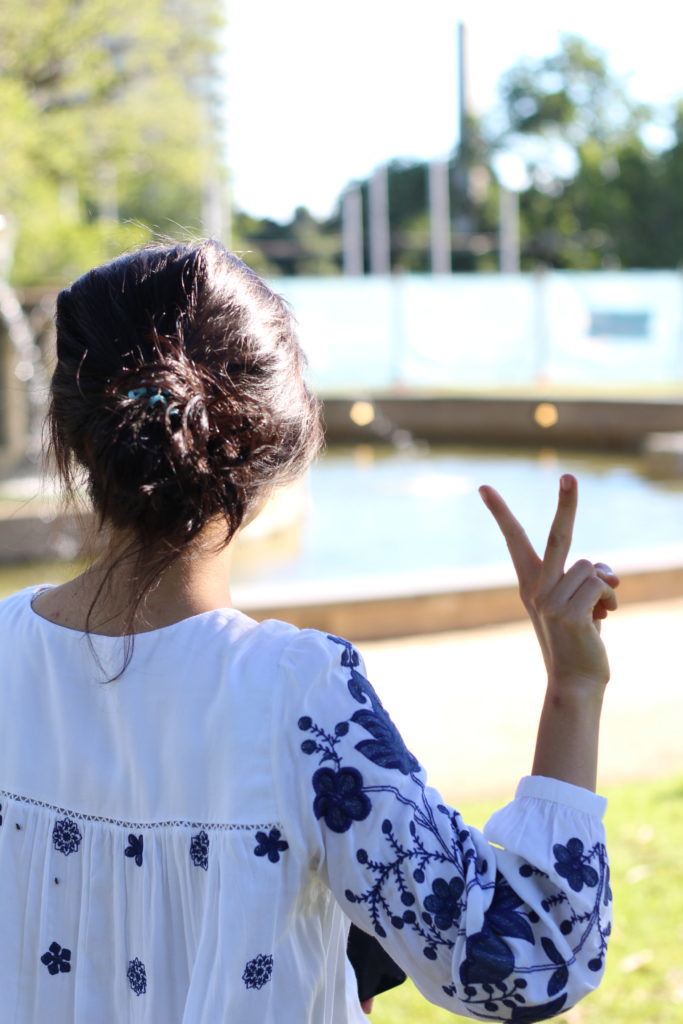
When you are in a depressed state, do you feel envious of those who exude positivity?
You’ve just asked the question that hit the nail on the head. If anything, I feel guilty that I do not feel the same way they do. I blame myself for not being a more positive person, for failing to emulate joyous people. It’s part of my denial where I do not emotionally acknowledge what I have as an illness, but rather I subconsciously see it as a personality defect. For me, being happy feels like a choice I fail to make, time and time again. Of course, logically I understand that mental illness is just that. An illness. Our liver and heart can malfunction, so why not our brains? Why do we behave as if the brain should be immune from illness? Perhaps because our brain is inextricably linked with our personalities and sense of self.
Where does the true cause of depression lie?
I think it’s the same with any other chronic illness, you are dealt the cards you have. Certainly the fact you have the disease isn’t your fault at all but it’s your responsibility to manage the disease. If you take the steps to manage it, you will improve your life and decrease the symptoms of the illness exponentially. While it’s not my fault I have depression and anxiety, if I’m not making sure I get enough sleep at night, not taking enough time to exercise, seeing a psychologist to work on improving my positive thinking and if I’m not making the effort to see family and friends then I am responsible for aggravating the illness. For me, anxiety is a completely different experience. It is more a sensation than it is an emotion. There aren’t any thoughts attached to it. My body is simply on edge. I’m jumpy, tense, irritable and restless. It’s times like those I feel a desperate urge to hop into my car and drive for hours to nowhere in particular, or hop on my bike and cycle like a maniac. I feel a sense of needing something to happen in my life. It’s a rush of adrenalin, which I need to release through the physical act of escaping.
How do you manage your mental illness on a day to day basis? Do you have any tactics in place?
I’ve gotten better over the years. Ultimately the key strategy I’ve employed is to quit being in denial. I’m becoming better at accepting how I feel as a fact – it just is, rather than combating my feelings and feeling like a failure for feeling the way I do. By slowly starting to acknowledge that I do have an illness, I am not as riddled with guilt and self-loathing as I used to be. It really helps that I have a full time job now. It gives me that sense of routine, gets me out of bed in the morning also gives me sense of purpose and independence. I also simply do not have the time or luxury to indulge in my feelings of sadness, so I’ve become better apt at pushing them to the back of my mind. Other coping strategies I have, have proved to be less effective. I cycle a lot and enjoy long drive, and I did those things in destructive ways. I cycled so fast I crashed my bike and landed myself in the ER. I drove so fast I lost my licence to an accumulation of speeding tickets; I drove so recklessly, I crashed my car, crumpling the entire bonnet; I’d hike a mountain in the middle of the night. I was simply indifferent towards my own safety. I’d feel a temporary relief from the high of moving really fast. I had a need for speed, I guess. The adrenaline I got from topping 160 kph filled that awful numbness and indifference I felt towards everything. Losing my licence was a lesson though, not to mention the $1k I spent on speeding tickets. Never again. You live and you learn, I guess.
Do you feel like your mind has betrayed you?
Absolutely. When I struggle to keep a handle on my emotions, I feel betrayed by the limitations of my own mind. I feel guilty and engage in self-blame. I tell myself, “Stop feeling sorry for yourself, what have you got to be upset about, get with it.” Guilt and denial. They’re the two biggest pathologies I deal with, with my depression.
In terms of self-acceptance, do you feel uncomfortable when someone gives you a compliment?
I don’t actually, I really do appreciate it when I get a compliment. I was talking to a friend who has depression, and she said she gets really upset when she receives a compliment. She has such a low self-esteem, she cannot fathom that anyone would think well of her. In her mind, they must surely be making fun of her, or being sarcastic. I appreciate compliments because I’m always berating myself, so it’s refreshing when someone tells me different.
Does your illness define your personality?
It’s certainly a part of my personality, but I wouldn’t say it defines me, as there are many non-depression related aspects to my personality. This is why I feel reluctant to take medications, because I wonder what part of my personality is real, if it’s being chemically altered? I know for a fact that people with sensitive, anxious and pessimistic dispositions have a much highly likelihood of succumbing to mental illness. Without the depression, I suppose my personality would more or less be the same, just with the negative, self-damaging aspects being less pronounced. I experienced a few years depression-free during my time at boarding school, and my personality was more or less the same, so I suppose, that is my final answer – My personality is pretty set, it’s just that certain negative aspects of it become more pronounced during depressive spells.
Why do you think it’s difficult for people to open up about their mental health journey?
It’s ultimately self-blame, really. You blame yourself for not being a stronger, more positive person. You blame your sadness on a personality defect, rather than an illness, and so you feel ashamed about it. The other factor is that people don’t like to be vulnerable. To reveal that you suffer from a mental illness is to admit to a vulnerability, and become open to opinions and judgment from other people. Everyone likes to come across as successful, happy and well-adjusted people. No one likes to admit that they’re struggling, for fear of being looked down upon or pitied. I, personally, don’t tell my colleagues. I fear being treated differently or seen as less than, if they knew. Perhaps they already know or suspect it. If they do, they haven’t said so. Because there are days at work where I’m more quiet and withdrawn than usual, and I’m sure my colleagues sense a dark cloud hanging over my head during those moments. I think one of my colleagues has anxiety. Although she hasn’t expressly told people so, presumably for the same reasons I’ve abstained from telling people; she’ll drop comments about her condition. It’s easy for someone who has anxiety like myself, to pick up on other people who have it.
Do you think there is enough support/resources for those seeking advice?
My counselling sessions are covered by my employer, but I was thinking that if they weren’t, I would be severely out of pocket. It is partly subsidised, but I would still incur a lot of expenses. In that sense, mental illness isn’t treated with the same level of importance as other life threatening illnesses. I say life threatening illness because it can potentially lead to suicide. Having said that, though, things are moving in the right direction. Public forums and fundraising to increase awareness and decrease social stigma, all these are great things. It’s important sufferers and society realises that depression is an illness and not a choice or a personality defect.
Who do see as your closest allies?
Hands down, my brothers. I’d be so screwed without them. I don’t know how I would have survived my childhood if I didn’t have two other people to share it with me. I think that’s how all three of us managed to cope, and come out of it as relatively normal human beings. One brother is reflective, quiet, emotional and introverted. I’m more comfortable telling him about my depression and anxiety. The other brother is very extroverted and active. He finds conversations about my mental state very uncomfortable, so I try not to talk to him about it. For the both of them, I don’t reveal the full extent of my condition, because I’m mindful not to frighten them. I don’t want them worrying about my welfare. Honestly, they’re my anchor and my best friends. We’re accepting of each other, always have each other’s backs, and love each other to pieces.
Looking back at your mental health journey, do you have any regrets?
Looking back, this is where I feel like I have grown a lot. If you asked me that a few years ago I would have rattled off a long list of regrets. The marriage proposal I turned down in my early 20s to a man I loved, the years I wasted languishing in a course I hated; my failure to follow my heart, my constant need to do as others say. Now I can honestly say that I don’t have any regrets. I’m where I need to be, and ultimately regret is really, the most effectives means of feeding depression. As a means of self-preservation, I just don’t go there, anymore. If there was one thing I could change, though, it would be to be depression and anxiety free. It would be fantastic to be a resilient person with a strong mental constitution.
Do you love yourself?
I love myself in the sense that I honestly want and strive for the best for myself. I don’t accept disrespect or ill treatment from other people, I have a strong sense of what I deserve. I want to give myself the best shot I can for not happiness, but for peace and contentment. On the other hand, I don’t love myself, and can be rather unkind to myself through the moments of self-berating I engage in. I tell myself that I’m not smart, wise, pretty or successful; that I’m weak and pessimistic. And again, that’s my denial resurfacing, whereby I blame myself for my mental illness. As I get older though, I am gaining more self-acceptance. I’m moving in the right direction. I don’t know that I could ever truly love myself for who I am, but I’d be doing well if I can one day honestly say that I accept myself.
Would you be in a relationship with yourself? or friends with yourself?
I would be friends with myself for the fun of being able to say, “Oh my God, you totally get me!” In terms of relationships, that relates back to the question of whether I love myself. Do I love myself enough, that I’d be willing to date and fall in love with myself? I’d appreciate the fact that I would connect with somebody who is exactly like me in personality and experiences. That would be comforting, but at the same time, it would be a struggle. Not because I’m an unpleasant or defective person, but because couples in general are healthiest when there are different personalities, experiences and opinions between them. It lets them balance each other out. A relationship with two purely exuberant extroverted people would be exhausting and overbearing. A relationship with two purely introverted and depressive people would be flat and hollow. All in all, variety is the spice of life, so I wouldn’t want somebody exactly like me.
Do you have a quote that you relate to?
Let’s see. I have a little gift from a friend with a whole bunch of quotes. Here’s one I like: “Maybe the journey isn’t so much about becoming anything. Maybe it’s about unbecoming everything that isn’t you so you can be who you were meant to be in the first place”. Many times in my life, I’ve felt controlled and directed as to who I should be and what I should feel. As I’ve gotten older, I’m slowly shedding the baggage of other peoples’ expectations of me, and learning and accepting who I am.
Where do you see yourself in the future?
I hope I’ll continue to be financially independent. I don’t ever want to be in the situation where I’m dependent on people who treat me with derision and disrespect. If I can maintain my independence, I know I’ll always be okay. I also hope to have met The One, if I’m lucky, with a child, because I’d like to be a mum someday. I also hope I’ll have moved back to Melbourne by then, as I’m living interstate now, since I wasn’t able to find work in Melbourne. My closest friends who I’ve known for years are in Melbourne, as are my mum and brothers. My dad will retire in Melbourne, in the years to come. I want to be where my people are, so Melbourne is my end goal.
How are you feeling?
I’m feeling good, actually. I felt trepidation at the start of the interview, and struggled to open up. I’ve never had trouble opening up to you because you’re a good friend, but it’s just the awareness of the voice recorder that made me initially wary and cagey. As we progressed through the interview, it became a rather therapeutic and thought provoking experience. All the questions you asked have been really refreshing, because I’m usually a rather guarded person. That’s another personality trait of mine. I don’t find it easy to reveal my vulnerabilities to people, as I guard my heart closely. The interview has been a good learning curve, it’s great finally opening up, when it was initially a worry to do so.
Jodie* enjoys writing in her spare time and we are lucky enough to have her share one of her pieces with us >>Three Tokens<<
*Name has been changed to maintain confidentiality
